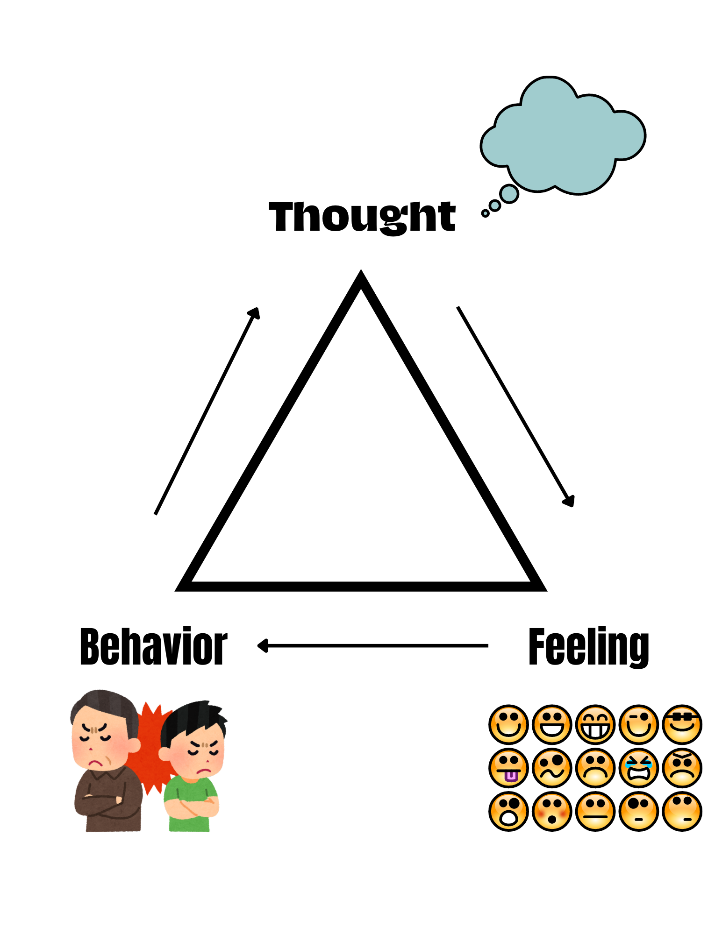our blogs
Current Post

The Benefits of Cognitive Behavioral Therapy (CBT)
Counselor, Insight Clinical Counseling and Wellness, LLC
Cognitive = thinking, and behavior = actions, so Cognitive Behavioral Therapy (CBT) is a therapy in which your counselor can make connections from your thoughts, feelings, and behaviors. You may or may not have heard of the CBT triangle. The CBT triangle is a good visual representation of how our thoughts can influence our feelings which can influence our behaviors.

Sometimes, we need a third-party person, aka a counselor, to help us identify how our thinking is impacting our everyday life. A counselor’s job is to identify how we can make changes that can impact our lives. CBT is a source of challenging ones thinking or identifying the thought to make changes for the better.
For example, let’s go through the triangle together.
Let’s say there is a thought when you wake up that “today is going to be a horrible day.”
The feelings that you may have as you go through your day are defensive, guarded, or somewhat frustrated based on that thought.
Because of the thought and feelings throughout the day, the behavior you may have could be arguing with your family or your partner, taking your anger out on loved ones, or making careless decisions and impulsiveness.
Then, let’s say based on that behavior, your next thought could be “I am a horrible person,” which can repeat the triangle again with feelings and behaviors to follow.
If we can change the thought to be more optimistic like “today is going to be wonderful” or “I am grateful for another day.” The feelings that follow may be kind, blessed, positive, and upbeat.
Then, the behavior or action would be open-minded to others, listening, and responding well to others.
However, sometimes it may take a counselor to understand and make these connections. Feel free in your sessions to ask your counselor to teach you or help you understand CBT better and/or use it in sessions.
Latest Posts

What is OCD and How Do We Treat It?
When we hear that someone has an obsessive-compulsive disorder (OCD) diagnosis, we often think this means they are very clean and like to wash their hands! Although these symptoms can be true for some individuals experiencing OCD, this is also a very limited perspective. First, let’s break this down by getting into the obsessions, then the compulsions, how they work together and lastly, what OCD treatment looks like.

Coercive Control: The Hidden Domestic Violence
When most people hear about intimate partner violence (IPV), thoughts of physical abuse usually come to mind. However, another insidious form of abuse, coercive control, is often overlooked since the scars are not always visible. Some coercive controllers are physically violent, while others are not.

You Don’t Have to be a Monk to ‘Meditate’
So many of my clients have shared with me that meditation (mindfulness) coping skills ‘Don’t work for me!’ or ‘They make my anxiety worse!’ or ‘I could never sit and think about nothing!’ Maybe you can relate? For most of us, when we think of meditating, we think of a monk sitting cross legged on the floor experiencing a state of quiet and focus. Honestly, that’s what comes to my mind too.
Our Locations
Request Appointment
Contact

Copyright © 2025 Insight Clinical Counseling & Wellness, LLC. All Rights Reserved.

Our Locations
follow us
Instagram
Facebook
LinkedIn
